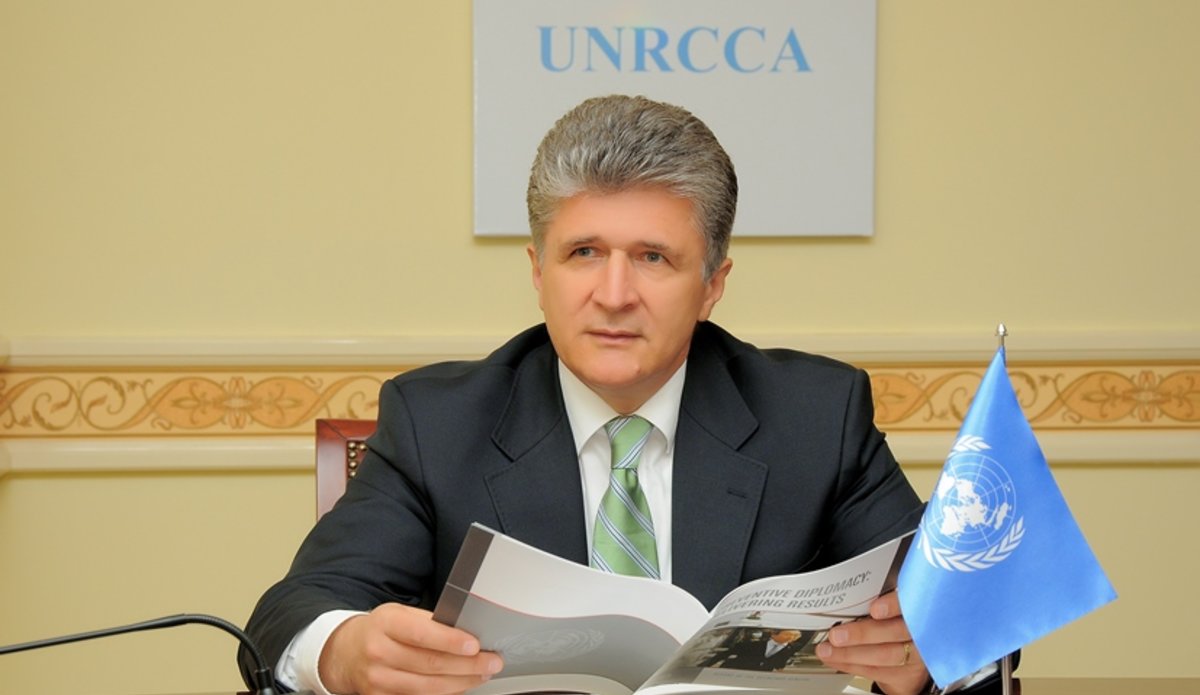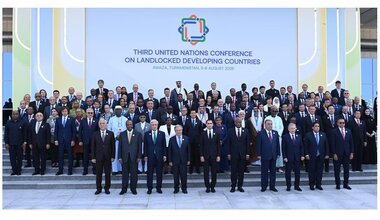Statement by SRSG M. Jenča, at the IV Congress of Leaders of World and Traditional Religions
ASTANA, Kazakhstan
Mr. President,
Your Excellencies,
Ladies and Gentlemen,
It is an honor to be with you today, on the occasion of the Congress of Leaders of World and Traditional Religions. I wish to begin by congratulating and thanking President Nazarbayev for launching this important initiative at a time when we need, possibly more than ever before, to promote tolerance and respect for each other’s believes.
Religion plays an important part in our day to day life. It can bring a sense of belonging and identity to societies, and can provide a continuum for individuals linking their past through their present to their future.
I think it is not an exaggeration when I say that this is a common characteristic of all religions in the world. Human beings long for interpretation of why they exist and what the purpose of their lives is. It is those who help people understand these questions and assist in finding answers that have a huge responsibility.
It is easy to manipulate a sense of belonging and direct it against "the other", the alien, thus stressing "the own". But we know that finding an outside enemy, a scapegoat, as easy as it seems, is not sustainable as a factor producing cohesion for a society.
What is needed for sustainable cohesion is openness, fairness, tolerance, dialogue, understanding for each other. These are factors that can bring about peace.
It is in this context that religious leaders can play a very important role. They are in a position to actively promote these principles and eliminate misunderstandings, misperceptions and distortions, which at times transform into extremist ideologies. Religious leaders can counterweight those who want to use religion for their purposes of criminal gains, or to promote ideas of superiority and intolerance.
Thus, religious leaders are the ones who can be an integral part of peace building processes in different part of the world, including in Central Asia.
For this they need the support by the international community, and can make use of instruments and tools the international community has produced already.
In 2006 the General Assembly of the United Nations adopted the Global Counter-Terrorism Strategy, in which the UN Member States called upon religious leaders to undertake certain obligations to ensure non-proliferation of stereotypes about any religion as conducive to extremism and violence.In November 2011 Central Asian states, with support of UN Regional Centre for Preventive Diplomacy for Central Asia and the UN Counter-Terrorism Implementation Task Force and European Union, adopted the Joint Plan of Action for the Implementation of the UN Counter Terrorism Strategy in the region. They reaffirmed that terrorism should not be associated with any religion, nationality or ethnic group. They committed to respect the right of freedom of religion, when adopting specific legislation and policies to counter terrorism which should comply with international commitments for human rights.
What is of particular importance in this context is what the UN Counter-Terrorism Strategy calls conditions "conducive to the spread of terrorism". These are exclusion, disenfranchisement, marginalization, violations of human rights etc.
Religious leaders in today's world are – as much as all leaders in general, including political ones – responsible for the promotion of a concept of society that excludes the aforementioned conditions and should promote an atmosphere of openness, fairness, tolerance, dialogue, understanding for each other, as these are factors that can bring about peace.
The Regional Centre and I personally look forward to working together with religious leaders to make their voice heard loudly in the quest for best ways to promote peace in the region.
Thank you for your attention.
 UN
UN





